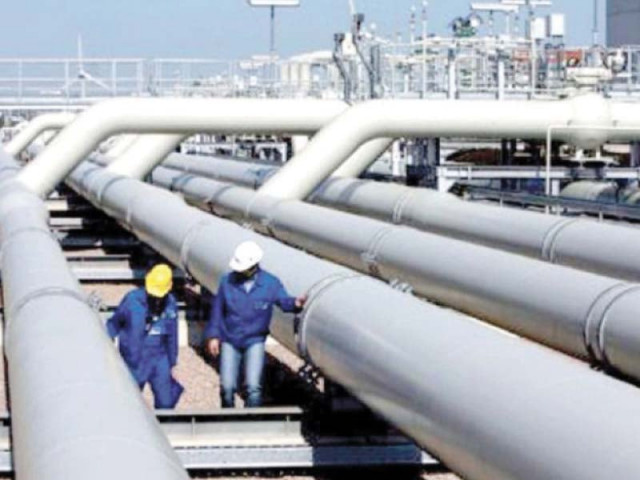Tariff hike not enough for gas utilities
SSGC and SNGPL will be unable to bridge deficit; will stare at loss of Rs29b during FY16

Taxes in power sector make around 45% of the total cost as consumers were paying tariff rationalisation, financial cost and Neelum-Jhelum surcharges in addition to other levies. PHOTO: FILE
The hike in gas prices came as an unpopular move, but was meant to reduce the burden on gas utilities that have borne the brunt of theft and distribution losses over the years.
Despite the tariff increase, gas utilities are still staring at a loss of Rs29 billion with theft and distribution losses also increasing their pace to match the hike in fiscal year 2015-16.
Officials familiar with the development say that the government raised gas tariffs to enable Sui Northern Gas Pipelines Limited (SNGPL) and Sui Southern Gas Company (SSGC) recover Rs77 billion from gas consumers across different categories. It also included, for the first time, domestic consumers of gas.
The effect of the raise, announced on August 31, was felt the very next day with SNGPL’s share increasing from Rs33 to Rs34.65 with over 15.3 million changing hands. SSGC too, rallied and closed at Rs44.69, up from Rs42.57, and saw 13.3 million shares changing hands on September 1.
The ‘recovery drive’ would have seen SNGPL receive Rs47 billion, while SSGC would have pocketed Rs30 billion during the year. However, despite the move, the two will still see a revenue shortfall, according to officials.
“SNGPL is still facing a revenue shortfall of Rs26 billion, while SSGC of Rs3 billion,” officials said, adding that the main reason behind the loss was corruption in these gas utilities and illegal connections in Khyber-Pakhtunkhwa and Balochistan where security leaves much to be desired.
The tariff increase
According to workings of the petroleum ministry, utility bills of domestic consumers with up to 100 cubic metres’ consumption would go up by Rs16 per month. Those using 200 cubic metres would see a rise of Rs64, while Rs96 would be the hike for consumption of 300 cubic metres. The effect would be Rs1,151 for 400 cubic metres, Rs1,439 for 500, Rs1,727 for 600 and Rs2,015 for consumption of 700 cubic meters per month.
Petroleum Minister Shahid Khaqan Abbasi also claimed during his press conference, in which he also announced the lowered oil prices, that the government had increased the subsidy for domestic consumers to Rs75 billion. However, the statement creates doubt as the gas sector was running without any direct subsidy from the government with the entire cost of supply being passed on to the consumers. Additionally, gas is being supplied to domestic and fertiliser sectors at subsidised rates through a mechanism of cross subsidisation whereby the subsidy was being offloaded on to other sectors.
The breakup
The most substantial increase was for the power sector, which saw the rate go higher by up to 23%, from Rs488 to Rs600 per mmbtu. This would eventually be passed on to the power consumers.
Taxes in power sector make around 45% of the total cost as consumers were paying tariff rationalisation, financial cost and Neelum-Jhelum surcharges in addition to other levies.
Under pressure?
Some argue that the government seems to be caving under the textile industry lobby as captive power plants’ tariff was hiked by just 4.8%.
During the Pakistan Peoples Party (PPP) government, the National Accountability Bureau had termed the use of gas - already depleting fast in resource - for inefficient captive power plants as a criminal act, arguing that the fuel could be used elsewhere for more productive use.
Published in The Express Tribune, September 5th, 2015.
Like Business on Facebook, follow @TribuneBiz on Twitter to stay informed and join in the conversation.


















COMMENTS
Comments are moderated and generally will be posted if they are on-topic and not abusive.
For more information, please see our Comments FAQ